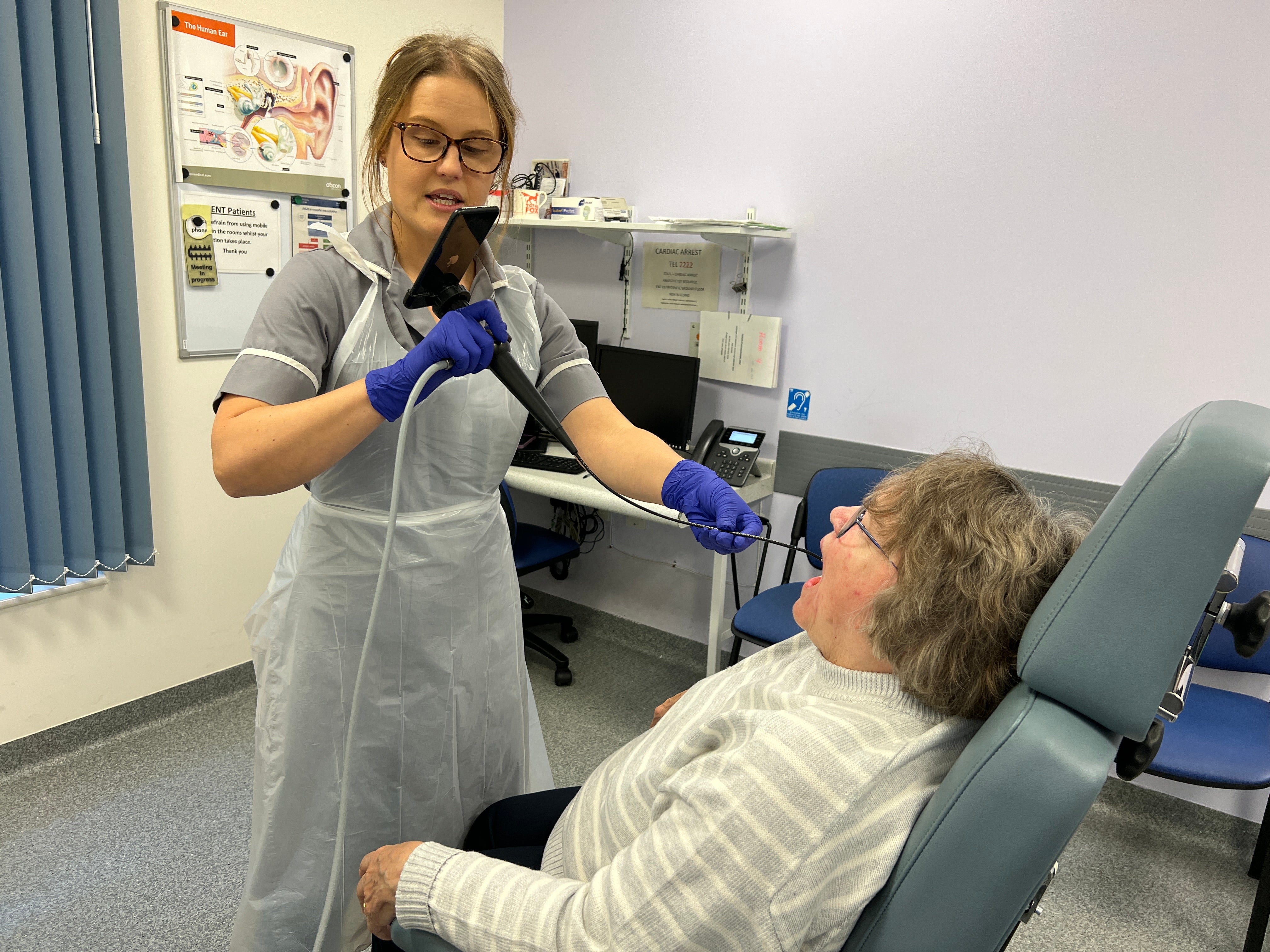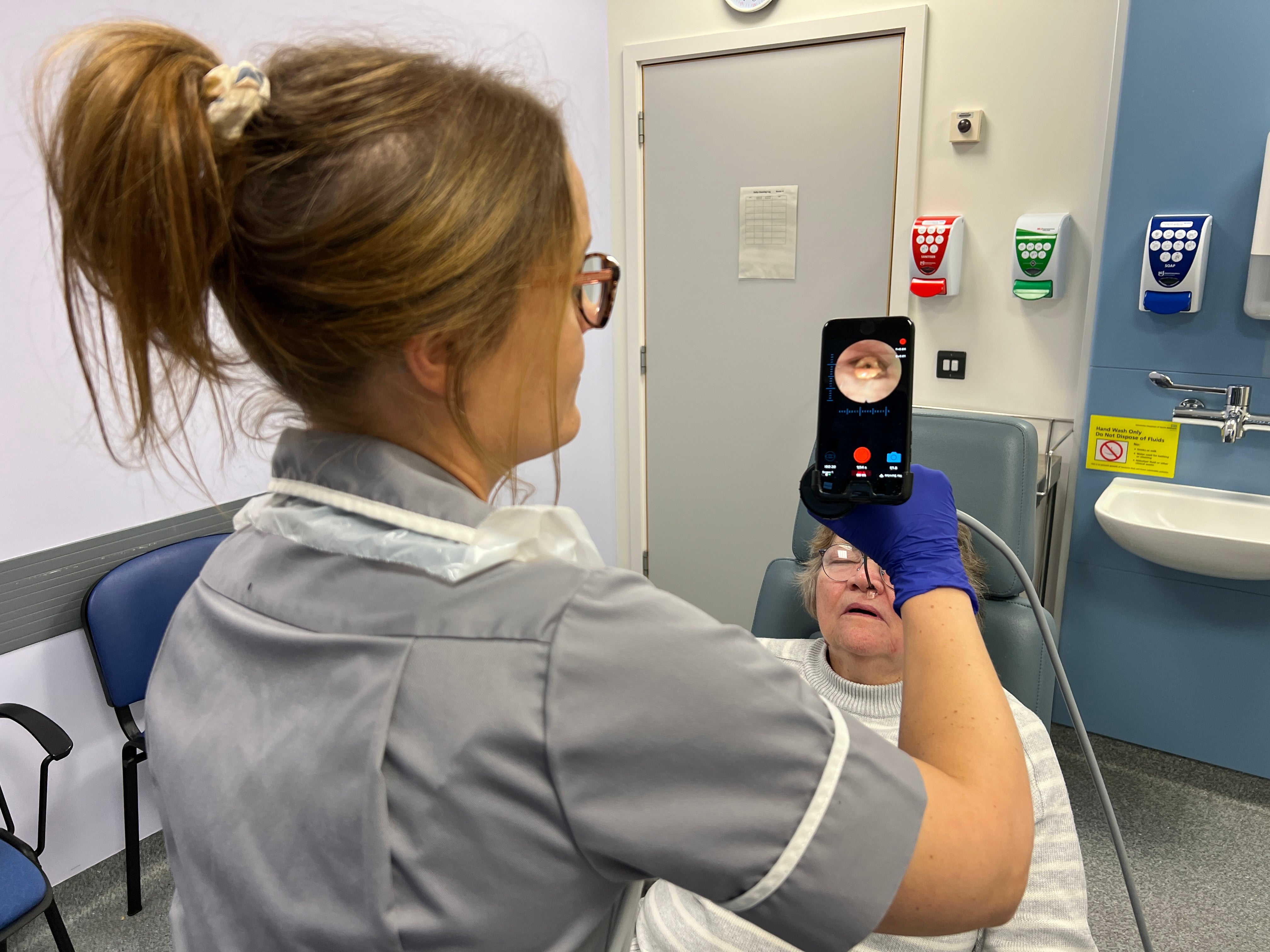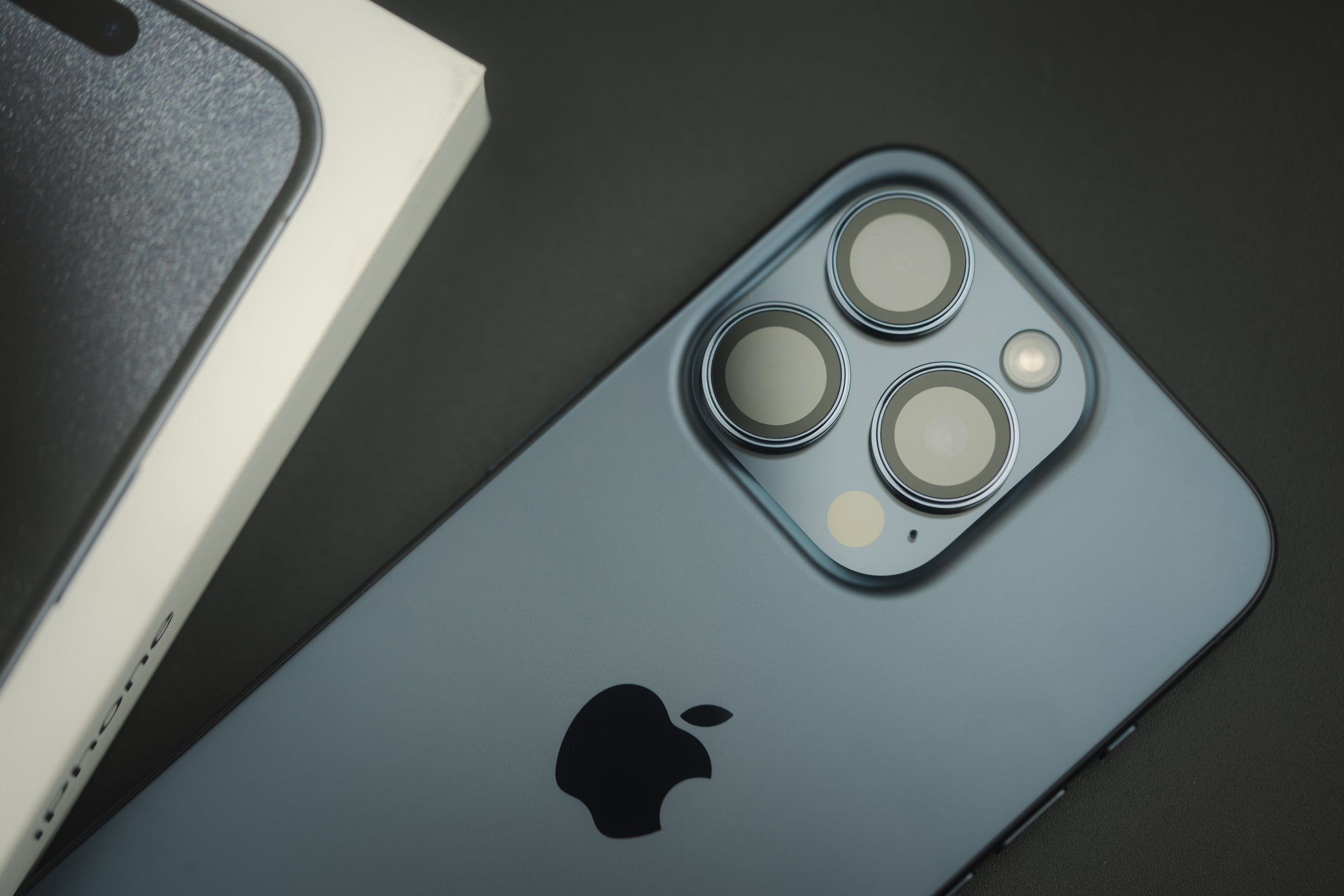How iPhones could be used by nurses to rule out throat cancer
Patients often have to wait weeks to get the all-clear - but new technology may help cut down waiting times

Your support helps us to tell the story
From reproductive rights to climate change to Big Tech, The Independent is on the ground when the story is developing. Whether it's investigating the financials of Elon Musk's pro-Trump PAC or producing our latest documentary, 'The A Word', which shines a light on the American women fighting for reproductive rights, we know how important it is to parse out the facts from the messaging.
At such a critical moment in US history, we need reporters on the ground. Your donation allows us to keep sending journalists to speak to both sides of the story.
The Independent is trusted by Americans across the entire political spectrum. And unlike many other quality news outlets, we choose not to lock Americans out of our reporting and analysis with paywalls. We believe quality journalism should be available to everyone, paid for by those who can afford it.
Your support makes all the difference.A medical technology trial using iPhones in the detection of throat cancer is being undertaken by the NHS amid a surge of referrals creating waiting list backlogs.
Nervous patients often have to wait weeks to get the all-clear, but it is hoped a new camera device attached to a smartphone would capture images instantly, allowing specialists to check for traces of cancer and report back in hours.
Janet Hennessy, 76 and from Bradeley in Stoke-on-Trent, who took part in the study, said her experience was procedures like this normally took up to three weeks. “I think the app is absolutely brilliant,” she said.
NHS national cancer director Dr Cally Palmer said detecting cancer early was key to providing treatment as soon as possible to help give patients the best chance of survival.

“For those needing tests to investigate suspected cancer, it can be an extremely worrying time and being able to rule out the disease sooner can make a huge difference for people and their families,” she said.
Ajith George, consultant head and neck surgeon at University Hospitals North Midlands NHS Trust, said the device had given the cancer referral system the “radical change” needed, with many NHS trusts struggling to keep up with patient demand.
“Streamlining services helps keep the focus on those unfortunate patients who get a cancer diagnosis,” Mr George said.
The NHS is under pressure to improve its performance as it grapples with a blow-out in cancer treatment schedules, with charity Cancer Research UK projecting in September that more than 300,000 patients would face delays by 2029.
People suspected of having throat cancer are usually given an endoscopy, which is a hospital procedure involving a long, thin tube with a camera inside being passed through the mouth or nose to look inside the body.

The endoscope-i adapter, which can be attached to an iPhone, includes a 32mm lens endoscope eyepiece and an accompanying app that allows nurses to capture images and share them with specialists via a secure cloud.
The NHS hopes the device, made by medical tech firm Endoscope-i Ltd, could eventually be used in any health service setting following a trial in the West Midlands, meaning people can get tested closer to home and not necessarily have to go to a hospital.
Since the pandemic there has been a spike in patients urgently referred to be tested for cancer, but no increase in overall cancer numbers diagnosed. Only 5 per cent of about 250,000 urgent referrals for suspected head and neck cancer result in a cancer diagnosis.
So far, more than 1,800 patients taking part in the trial have been cleared of throat cancer within a few days, enabling clinicians to focus on the smaller numbers of people diagnosed with cancer.
The NHS has set itself a 28-day deadline from the date of referral to inform people if they have cancer or not. Over the past four months, the NHS said more than 75 per cent of patients had received their results within the timeframe.
The NHS is working with the government on a ten-year plan involving technological innovation to assist in moving more care options from hospitals to the community.
Other innovations that have been piloted recently include a sponge that can be used to detect oesophageal cancer and a home-testing kit for people who have a genetic disposition to a fault in the gene that causes some types of cancer.
Join our commenting forum
Join thought-provoking conversations, follow other Independent readers and see their replies
Comments